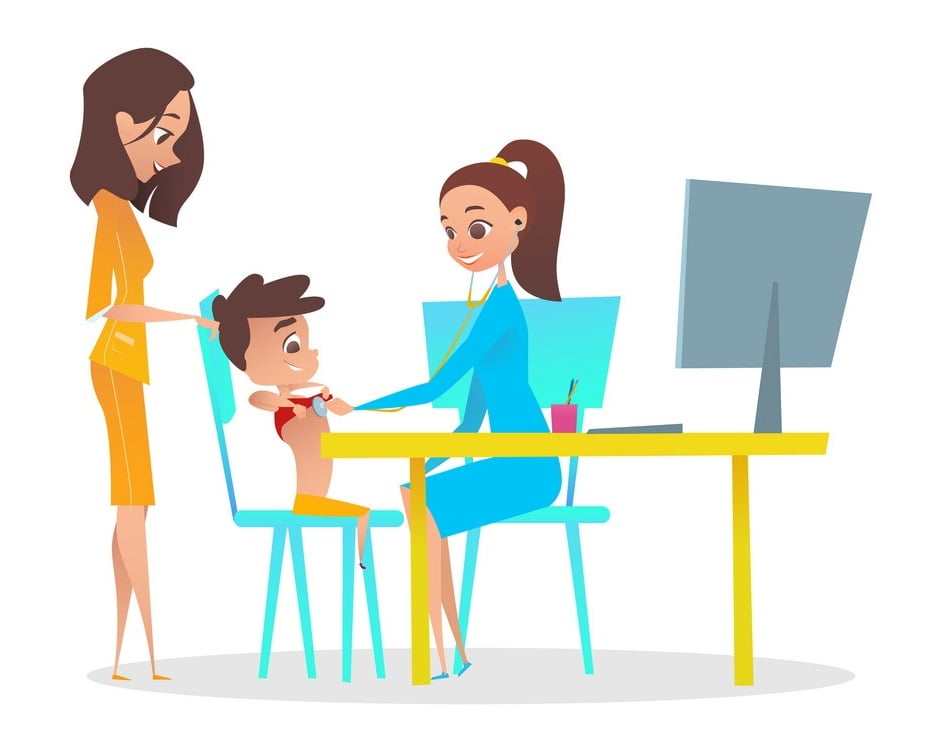Services
Organize Free Camp at Your Clinic
Organize free camp at your clinic
Introduction
Expand your clinic by conducting free camps. Free health camps play a vital role in enhancing community health and expanding clinic services. These initiatives bridge the gap for underserved populations, providing essential medical care to those who may otherwise lack access.
Organizing a free health camp at your clinic can be a powerful way to:
- Reach underserved populations
- Attract new patients
- Make a positive impact on the community
Clinics like Disha Arogya Dham and SMUDRA have successfully organized free health camps, addressing conditions such as nerve numbness, paralysis, Parkinson’s disease, and facial paralysis. These examples highlight how targeted initiatives can significantly benefit both the community and the clinics involved.
By incorporating community health services into your practice, you not only extend your reach but also foster goodwill and trust within the community.
Benefits of Organizing Free Health Camps
Community Outreach
Free health camps play a crucial role in identifying prevalent health issues within the community. By offering services such as screenings for hand and leg deformities, nerve block treatments, and addressing conditions like non-functioning limbs, clinics can provide necessary healthcare access to low-income individuals who might otherwise go untreated. This outreach helps create a healthier community by addressing immediate health concerns and preventing potential long-term complications.
Increased Patient Base
Offering free services serves as an excellent strategy to attract new patients. When individuals receive quality care for issues like headaches, nasal blockages, or thick greenish-yellow discharge, they are more likely to return for future paid services. This approach not only builds loyalty but also enhances trust within the community. A satisfied patient base often leads to word-of-mouth referrals, further expanding your clinic’s reach.
Health Education and Awareness
Health camps are ideal platforms for promoting preventive care and educating the public about common conditions such as sinusitis, migraines, and other ailments characterized by symptoms like sneezing or swelling and tenderness. By advocating for lifestyle changes and disseminating information on managing these conditions, you empower individuals to take proactive steps towards their health. This education can lead to better health outcomes and reduced healthcare costs over time.
Networking Opportunities
Collaborating with local organizations, medical professionals, and volunteers during these camps can significantly enhance service delivery. Partnerships with other healthcare providers allow for a more comprehensive range of services. For instance, working with specialists to address specific issues like cerebral palsy ensures that participants receive targeted care. These collaborations can also open doors for future joint initiatives, resource sharing, and enhanced community support.
By focusing on these benefits, organizing free health camps not only addresses immediate healthcare needs but also fosters long-term relationships within the community and among healthcare providers. Moreover, such initiatives contribute significantly to the overall improvement of public health by ensuring that essential healthcare services are accessible to all segments of society.
Planning Your Free Health Camp
Setting Objectives and Goals
Defining clear objectives is crucial for planning a successful free health camp at your clinic. Start by identifying the specific health needs of your community. For instance, if knee pain (often due to ligament injuries) or cervical issues are prevalent, design your camp to address these conditions. This targeted approach ensures that your efforts are aligned with community needs and maximizes the impact of the camp.
Other common conditions to consider include:
Setting measurable goals, such as the number of participants you aim to serve or the specific treatments you plan to offer, provides a clear roadmap for your event.
Collaborating with Professionals and Volunteers
Involving medical professionals and volunteers is essential for the success of your health camp. Reach out to local healthcare providers, including doctors, nurses, and therapists, who can offer their expertise. Engaging volunteers, especially medical students, can also enhance the camp’s effectiveness while providing them valuable hands-on experience.
Tips for effective collaboration:
- Create a detailed plan outlining roles and responsibilities.
- Organize training sessions for volunteers to ensure they are well-prepared.
- Foster partnerships with local organizations that can provide additional resources.
Choosing the Right Location and Time
Selecting an accessible venue is key to ensuring maximum participation. Look for a location that is well-known and easy to reach within the community. Disha Arogya Dham serves as an excellent example of an ideal venue due to its accessibility and established reputation.
Consider the following when choosing your location:
- Proximity to public transport
- Availability of parking spaces
- Adequate facilities (restrooms, waiting areas)
Timing is equally important. Schedule the camp during hours that are convenient for most people, such as weekends or evenings. This allows more community members, including those who work regular hours, to attend.
By focusing on these aspects—setting clear objectives based on community needs, collaborating with professionals and volunteers, and choosing an accessible location and convenient time—you lay a strong foundation for a successful free health camp at your clinic.
Conducting the Camp Successfully
Promotion Strategies
Effective promotion is crucial for conducting a successful free health camp at your clinic. Utilize diverse marketing techniques to maximize outreach and participation:
- Social Media Outreach: Use platforms like Facebook, Instagram, and Twitter to share event details, engaging visuals, and reminders. Create event pages and encourage community members to share them.
- Flyers and Posters: Distribute flyers in local businesses, schools, religious centers, and community boards. Ensure they are visually appealing and contain all essential information.
- Local Media Coverage: Work with local newspapers, radio stations, and TV channels to feature your camp. Press releases and interviews can significantly boost visibility.
Implementing Health Services Offered During the Camp
Providing a range of health services during the camp ensures you meet diverse community needs. Focus on common conditions while also offering specialized programs:
- Common Conditions: Address prevalent issues such as slip disc and sports injuries. These conditions often go untreated due to lack of awareness or resources.
- Specialized Programs: Offer tailored services for specific groups. For example, set up a dedicated area for cerebral palsy (CP) assessments and interventions. This specialized focus can attract participants seeking targeted care.
Implementing these strategies not only expands your clinic by conducting free camps but also reinforces your commitment to community health.
Smooth Transition
Maintaining seamless operations during the camp requires meticulous planning. Assign roles to volunteers and ensure clear communication channels. Equip your team with necessary resources like medical supplies and documentation tools to handle participant flow efficiently.
These steps set a solid foundation for executing a successful health camp, ultimately enhancing your clinic’s reputation and reach within the community.
Post-Camp Activities
Follow-up Care Plans
After organizing a free health camp at your clinic, establishing follow-up care plans is crucial. Participants with chronic conditions such as post-operation stiffness or ongoing issues like Sino-Care need continued attention. Creating structured treatment plans ensures they receive the necessary care beyond the camp. This can involve:
- Scheduling follow-up appointments
- Providing referrals to specialists
- Offering telehealth consultations for remote monitoring
- Ensuring patients have access to prescribed medications
Data Collection and Analysis
Collecting valuable data on participant demographics and health needs during the camp is essential. This data helps identify prevalent health issues within the community and informs future initiatives. Key data points include:
- Age, gender, and socioeconomic status of participants
- Prevalence of specific conditions like diabetes, hypertension, or respiratory issues
- Feedback on the services provided during the camp
Analyzing this data enables your clinic to tailor future health camps more effectively and address the community’s unique needs comprehensively. Utilizing software tools for data management can streamline this process, making it easier to derive actionable insights.
Furthermore, it’s important to consider that these health camps are not just about immediate medical assistance but also about empowering patients with knowledge about their health conditions. By focusing on these post-camp activities, you ensure that the impact of your free health camp extends well beyond its duration, fostering long-term community health improvements.
Gaining Recognition and Funding Opportunities Through Free Health Camps
Organizing free health camps significantly enhances your clinic’s visibility and reputation. By consistently providing free services, you build a reputation as a caring healthcare provider. This recognition often leads to acknowledgment from respected institutes, which can further boost your credibility.
Free health camps also attract donor attention. Potential funding sources are more likely to invest in clinics that demonstrate a commitment to community health. Successfully organized camps show your capability to manage resources effectively and make impactful contributions, making it easier to secure grants or donations.
This approach not only supports the financial aspects of your clinic but also ensures sustainable community engagement.
Conclusion
Organizing free camps at clinics can be a transformative step for your practice. These camps address critical healthcare gaps and serve as a powerful tool for community engagement.
Key benefits include:
- Community Impact: Providing essential services to underserved populations.
- Clinic Growth: Attracting new patients and expanding your clinic’s reach.
- Reputation Building: Establishing your clinic as a caring and accessible healthcare provider.
Actionable Steps:
- Define clear objectives tailored to community needs.
- Collaborate with local professionals and volunteers.
- Promote the camp through effective channels like social media and local media coverage.
Expanding your clinic by conducting free camps not only enhances public health but also strengthens the bonds between your practice and the community. Make a difference today. Take action towards planning your free camp and witness its long-term benefits for both the community and your practice.
FAQs (Frequently Asked Questions)
What are the benefits of organizing free health camps at my clinic?
Organizing free health camps can significantly benefit your clinic by enhancing community outreach, increasing your patient base, promoting health education and awareness, and providing networking opportunities with local organizations. These camps help identify health issues within the community and offer access to healthcare for low-income individuals.
How can I plan a successful free health camp?
To plan a successful free health camp, start by setting clear objectives based on community needs. Collaborate with medical professionals and volunteers to ensure effective planning. Choose an accessible location and schedule the camp at convenient times to maximize participation.
What types of services can be offered during a free health camp?
During a free health camp, you can provide treatments for common conditions such as knee pain, neck pain, slip disc, and sports injuries. Additionally, specialized programs focusing on conditions like cerebral palsy can also be implemented.
What should I do after conducting a free health camp?
Post-camp activities are crucial for maintaining engagement with participants. Establish follow-up care plans for those with chronic conditions and collect data on participant demographics and health needs to inform future initiatives.
How can organizing free health camps enhance my clinic’s reputation?
By successfully organizing free health camps, your clinic can build a reputation as a caring healthcare provider. This recognition can attract potential funding sources and donor attention, strengthening your ability to serve the community.
Why is it important to conduct free health camps in underserved communities?
Conducting free health camps in underserved communities is vital as it allows you to reach populations that may otherwise have limited access to healthcare. This initiative not only attracts new patients but also makes a positive impact on overall community health.
Discover more from DAD Ayurveda
Subscribe to get the latest posts sent to your email.








